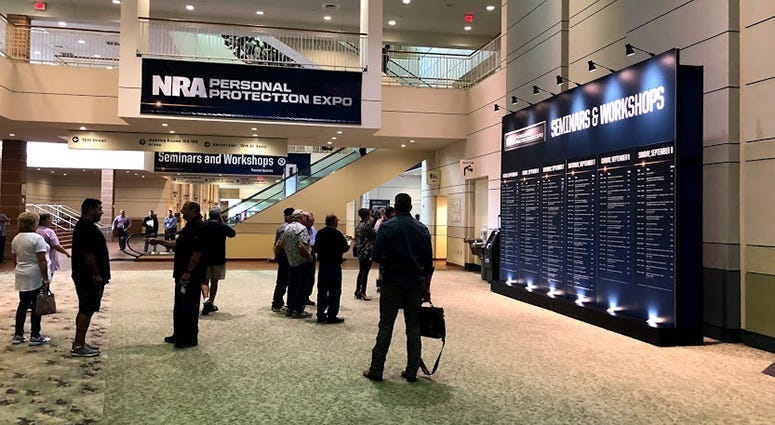
FORT WORTH (1080 KRLD) - The National Rifle Association is holding its Personal Protection Expo this weekend at the Fort Worth Convention Center. Hundreds of members from as far away as Hawaii are attending.
The convention includes seminars that run through Sunday. Events include seminars on concealed carry, a seminar called, "Gun Control Lies," and classes on how to interact with police when carrying a gun.
"There are several good seminars I wanted to see, and I wanted to see exhibits on some things. Concealed carry has been very important," said one man from Waco. "I am not an advocate of open carry. I think you are attracting attention, and you may be attracting the wrong attention."
Another program, called Eddie Eagle, is for kids in fifth grade and younger.
"It teaches them what to do if they find a gun, not how to handle a gun, but what to do if you come across a gun, which is another awesome safety program," says Harold Carter, 2nd vice president of the Texas State Rifle Association.
Friday morning, the National Rifle Association's School Shield staff led a seminar on school safety. According to stats from the group, 71 percent of schools reported at least violent incident in the 2017-2018 school year. Thirty-four percent of parents said they fear for their kids' safety.
The School Shield staff says it connects administrators with local law enforcement to conduct assessments and training. They say they start with the outside of the school and work their way in.
"What we're doing is very apolitical," says Don Alwes, an instructor with NRA School Shield. "We come in, and we address school security issues from the top to the bottom. We address every single one of them, and we don't tell you how to run your schools."
In some cases, he says administrators will learn staff or students prop doors open. Some schools, he says, do not lock their front doors.
Alwes says another part of the program urges districts to use social media to watch what issues need to be addressed, such as bullying or a child who may be dealing with emotional issues. He encourages districts to allow students to report bullying anonymously and have threat assessment teams that meet regularly.
"When we go into a school, talking about guns is a very, very small part of it," he says.
Alwes says the program aims to help schools identify hazards ahead of time. He says there is no "cookie-cutter" solution to how schools can secure themselves, and districts and police do not have a standardized process to determine whether campus security is adequate.
In larger cities, school marshals or armed staff at a school may be less of a priority because police may have a larger presence nearby. In smaller cities, he says a department may only have a few officers, so they must call everyone in or wait for help from neighboring departments before addressing a threat.
The conference runs through Sunday at the Fort Worth Convention Center.
